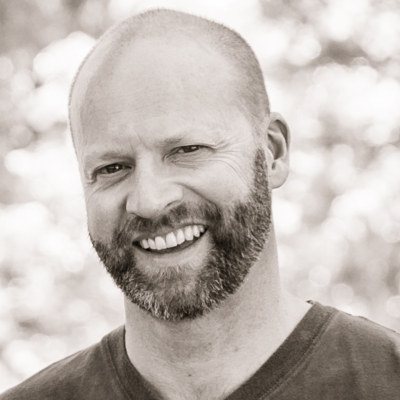Amanda Walker is a health lifestyle coach whose focus is on helping women feel better naked. She created the Feel Amazing Naked Program and the Feel Amazing Naked Podcast. She is the creator and blogger at awalkmyway.com. Amanda overcame a life of yo-yo dieting and emotional eating, allowing her to live a life where she controls her food, rather than her food controlling her. Now she uses her experience to help thousands of clients unearth the root causes of their food struggles to transform their bodies and their lives. She encourages her clients to lead fuller, healthier lives in which they can embrace their bodies and lose the self-consciousness and guilt that holds them back.
Why ‘Feel Amazing Naked’?
Amanda explains that many of her clients will lose a lot of weight, see the transformation, but continue to feel inadequate and lack confidence in daily life and their romantic relationships. She says that’s why it’s so important to feel amazing, in addition to looking amazing. When you feel amazing, she reminds us, confidence, and attractiveness can radiate outward and improve your sex life in ways that just looking amazing never will.
She believes that looking and being healthy are important, though she doesn’t deny that some individuals can be very attractive even while carrying extra weight. But Amanda tells us that she’s about holistic self-growth that includes mindset elements along with health and body transformation.
In order to set a course for individual clients, Ms. Walker informs us that she likes to ask clients what their goals are before they begin. She says that some clients want to lose weight, some want to work on weight-loss goals, and many want to work on mindset and body transformation goals.
The Feminine Ideal and Modern Women
Amanda suspects that women struggle with body image issues more than men do because social media and traditional media alike put increasingly perfect, and increasingly impossible feminine body ideals into the world. She explains that women are susceptible to these images of perfection from early adolescence onwards and that she feels her personal background with these influences makes her especially passionate about helping women get past the detrimental thoughts and poor mindset these cultural ideas impart.
Ms. Walker also mentions that women are encouraged to serve many roles. She lists female roles like being parents, spouses, employees, and entrepreneurs as a small selection of the roles women are expected to fulfill, and she goes on to mention that the more women serve others or fulfill externalized ideals, the less in touch they are with their own needs and desires. She suggests that when people disconnect from their own, personal ideals, they also disconnect from the confidence that’s derived from having a clear view of one’s own desires, needs, and independent identity. She suggests that it’s necessary to serve yourself first sometimes, and it’s imperative that women stop feeling guilty about prioritizing themselves if they want to effectively interact with their friends and families.
Confidence’s Link to Health and Happiness
Amanda says that if we’re not clear on who we are and are not confident in who we are, then we can’t fully show up in our other relationships and roles in life. Lacking confidence, she explains, dims our light, and tries to hide who we are, while confidence allows for full investment in and involvement with the world. Especially in our sex lives, she says, lacking confidence can lead to us trying to literally hide the body that makes us insecure, and that inhibits connection.
Ms. Walker explains that prioritizing health and making healthier choices also allows women’s confidence to improve because it encourages women to make more intentional actions. She suggests that this link between intentional living and growing confidence can encourage women to adopt more healthy changes, like becoming more active, which leads to more confidence and creates a healthy cycle of confidence-boosting.
How to Change Your Habits
Amanda points out that overeating is usually a coping mechanism being used to cover up something else. She says that people can undereat or overeat, but in either case, she encourages women to discover the root cause that’s preventing them from making the changes they desire. After observing the thoughts that accompany eating or other actions that need to change, she suggests that people can start to chip away at what’s really behind their unhealthy behaviors.
By embracing the journey towards wellness and enjoying the systems that lead to our ultimate goals, Ms. Walker suggests that we can enjoy and appreciate where we are on our path to health. She uses the example of a person who wants to be a runner, saying that it’s essential to stop saying you can’t accomplish your goal. She explains that you must say you’re becoming a runner before you’ll let yourself become a person who runs. She reminds us that our thoughts change our beliefs, and changing our thoughts about who we are and what we can do can change our feelings and actions.
She also explains that habits are easiest to change by taking small, consistent steps in the right direction. Initially, the tasks should be so easy that you make it hard for yourself to avoid the activity you want to add to your life. She tells us that aligning the actions of her clients with their goals is another important part of her work. To do that, she encourages her clients to look at what they’re actually doing, and accept that those are their priorities right now. Only by changing their actions, she explains, can her clients truly change their lives.
Morning Celebrations
Amanda encourages her clients to look in the mirror with a dry erase marker and write down one thing they love about themselves each day in the mirror. She says that the constantly lengthening reminder of awesome things about you helps to remind you of how awesome you are.
Root Causes of Unhealthy Choices
Amanda tells us that time management, not understanding how habits are formed, negative self-talk, and limiting beliefs are a few of the root causes that prevent her clients from making the changes they desire.
Being Intentional About Sex
Amanda knows that poor body image often limits people’s sex lives, but she also finds that simply talking about sex and bedroom confidence with her clients makes them feel more comfortable approaching and talking about sex in their own lives.
Ms. Walker admits that even in her own life, she often fails to manage her time intentionally enough to have time with her husband before the end of the day. To combat this tendency and retain intimacy in romantic relationships, she says we must stop, pause, and make a commitment to approach sex earlier in the day and give our best selves to our partners.
She tells us that pausing to think about and realign our actions helps us remember to connect with our spouses and often rejuvenates our lives romantically and sexually. She also insists that taking care of yourself and building your self-love makes it much easier to give yourself freely in intimate contexts.
Amanda’s Favorite Weight-Loss Tip
Amanda advocates time management and meal planning as great first steps. She suggests planning your food intake a day in advance because having a plan and being fully intentional about food intake solves a lot of problems. She says that just being mindful of what you’re eating, which this type of planning requires, starts to create a spiral of success.
Resources for Amanda Walker:
https://feelamazingnaked.com/podcast/
https://feelamazingnaked.com/challenge/
More info:
Link to the free guide – Talking About Sex: http://bettersexpodcast.com/talk
Join my email list here: http://bettersexpodcast.com/list
Book and New Course – https://sexwithoutstress.com
Web – https://www.bettersexpodcast.com/
Sex Health Quiz – http://sexhealthquiz.com/




